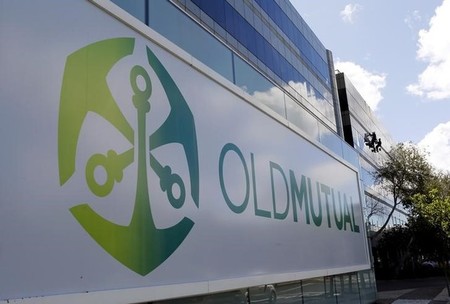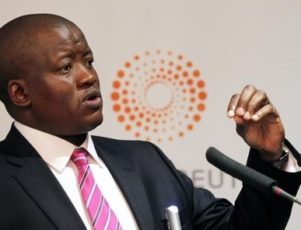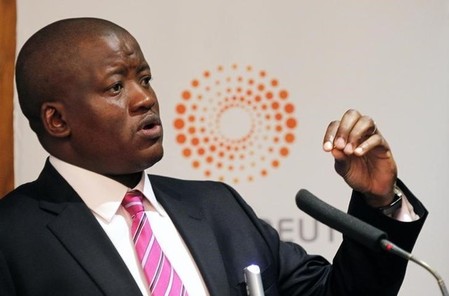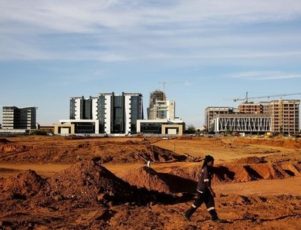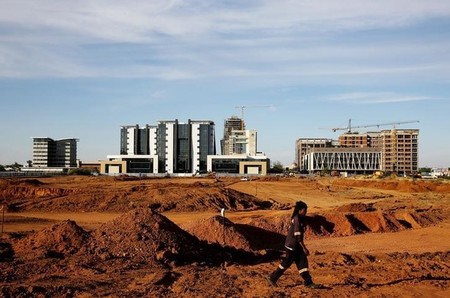By Sethuraman N R
(Reuters) – Gold rose more than 1 percent on Friday to hit a 5-month high as investors sought safe-haven assets after the United States launched cruise missiles against a Syrian air base, potentially escalating tensions with Syrian allies Russia and Iran.
U.S. President Donald Trump unleashed the military strikes in response to a deadly chemical attack on a rebel-held area, a U.S. official said on Thursday.
Spot gold had risen 1 percent to $1,263.53 per ounce by 0650 GMT. It earlier climbed as much as 1.4 percent to its highest since Nov. 10 at $1,269.28, and was on track for a fourth straight week of gains.
U.S. gold futures also climbed 1 percent to $1,266 an ounce.
“Clearly this raises the stakes and we expect to see gold prices continuing to push higher in the short-term, at least until there is some clarity around whether this is a one-off or develops into something more,” said ANZ analyst Daniel Hynes.
Stocks fell and safe-haven bonds and the yen jumped in Asia on Friday after the missile strike. [MKTS/GLOB]
The dollar fell 0.2 percent against the safe-haven Japanese yen to 110.54.
Investors had already been on edge as Trump met Chinese leader Xi Jinping on Thursday for talks over flashpoints such as North Korea and China’s huge trade surplus with the United States.
“My initial thoughts are the new president (Trump) is sending a big message to the Chinese about their willingness to act on North Korea as well with this strike,” said Jeffrey Halley, senior market analyst at OANDA.
Besides the risk-aversion sentiment in the market, gold is also supported by technicals, analysts said.
“Gold has broken the 200-day moving average intra-day and has tested its upper resistance at $1,264, the Feb. 28 high. A daily close above these levels can open a technical move to $1,300 with support now at $1,250,” Halley said.
Spot gold is expected to break resistance at $1,273 per ounce and rise more to the next resistance level at $1,281, as suggested by its wave pattern and a Fibonacci retracement analysis, according to Reuters technical analyst Wang Tao.
“We saw several foreign investors buying and Chinese investors selling as the prices rose this morning,” said a trader with a Shanghai-based bullion bank.
“Most investors in China think this is a short term impact. These kind of events, unless they cause more severe consequences, will only result in a spike in gold prices.”
Investors will also watch out for March U.S. non-farm payrolls data due later on Friday, which analysts say could be key for the short-term direction of the gold market.
Strong job gains will likely add upward pressure on wages, supporting higher interest rates, which could pressure gold.
Higher interest rates reduce investor appetite for non-interest bearing gold.
Spot silver rose 0.8 percent to $18.37 an ounce, after touching $18.47, the most since Feb. 27.
Platinum rose 0.2 percent to $961.05, while palladium was up 0.6 percent to $807.50
(Reporting By Nallur Sethuraman in Bengaluru; Editing by Christian Schmollinger and Joseph Radford)


